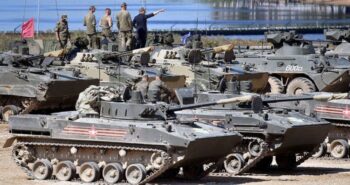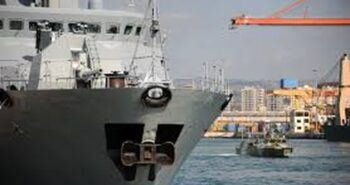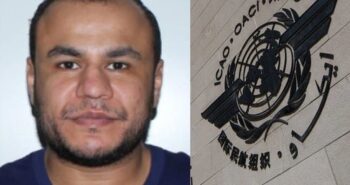James Wilson
 In January, United Nations Secretary-General António Guterres appointed Slovakian diplomat Ján Kubiš as the Special Envoy on Libya and Head of the UN Support Mission in Libya.
In January, United Nations Secretary-General António Guterres appointed Slovakian diplomat Ján Kubiš as the Special Envoy on Libya and Head of the UN Support Mission in Libya.
The appointment of Kubiš was not straightforward and his candidacy was contested. Several countries lobbied for the appointment of an African on the grounds that a better understanding of the specifics of the region’s problems was needed.
In March, Kubiš reported to the UN Security Council his recommendation that to overcome the split in Libya, the Council should give the interim executive power to hold general elections, and present the Libyan people with a chance to build a new democratic state.
But Kubiš has since changed his strategy and has now proposed that parliamentary elections should still be held in December, but that the presidential election should be postponed to a later date, in effect supporting the extension of the Government of National Unity mandate.
Kubiš is next scheduled to address the UN Security Council on this issue on July 15. A key item on the agenda is the proposal to hold elections at the end of December.
According to Article 101 of the UN Charter, a Special Envoy has to carry out operations approved by the Security Council. However, a Special Envoy cannot propose canceling elections.
The motion to postpone the date of the presidential election is likely to be voiced by a member of the UN Security Council, probably a foreign affairs minister of one of the EU member states.
The main purpose of the meeting on July 15 is to push for the conclusion that holding a presidential election in December is undesirable.
Preparations for the election of a future Libyan president are taking place with great difficulty. The legal basis for voting has not yet been developed and presidential candidates have not been nominated. This has led many opponents of the presidential election to declare the need to postpone the vote to a later date.
Kubiš originally took the initiative to hold a conference on Libya on January 19, 2020, and again on June 23, 2021. During the two summits, the participating countries came to an agreement on a mandatory presidential election in Libya. Now, this agreement risks being disrupted.
The Government of National Unity has a vested interest in canceling the presidential election. For now, the acting head of Libya is Abdul Hamid Dbeibeh, the prime minister.
In addition to serving as prime minister, Dbeibeh has the powers of defense and internal affairs minister. If the presidential election is held in December, Dbeibeh will be forced out of his post thereby cutting him off from control of the national oil industry and its financial revenues.
The Government of National Unity has been accused of illegal oil trading. If a strong and honest politician comes to power as a result of a legitimate election, which is foreign to many Libyans, the illegal enrichment of the GNU and others will stop.
The Muslim Brotherhood also plans to disrupt the presidential election. The Muslim Brotherhood regularly opposes Libyan elections and acts as a surrogate of the Turkish government.
Members of the Muslim Brotherhood have actively sought to seize power in the country. They have threatened to disrupt the election if Khalifa Haftar comes forward as a candidate.
But if illegal oil production and further trade continue, the Fezzan Anger Movement has threatened a new blockade of the oil fields.
The Fezzan Anger Movement is an association of armed tribal groups in southwest Libya. Members of the movement previously seized the El Sharara oil field and caused the Libyan National Oil Corporation (NOC) to stop work.
They sought to take control of pumping substations and set up a perimeter defence with its fighters around the entire oil field. The head of the movement claimed that the purpose of seizing the oil fields was not illegal enrichment.
The tribes were in favour of a fair distribution of income from the oil trade and the allocation of a budget to improve the living conditions of citizens of the region.
The Fezzan population actively supports holding the presidential election in December. The residents of Tripoli and many other regions are in solidarity with them.
Protests took place outside the High Election Commission in Tripoli in early July with protestors calling on the government not to delay the vote and to adopt a new electoral law.
Many protestors said that the Libyan people were against the postponement of the presidential election, and that delay would trigger social protests and a new crisis. The Libyan people are asking foreign states to intervene and force the Libyan government to conduct an election campaign.
In truth, Libyans have high hopes for a presidential election. More than ten years have passed since the overthrow ofQaddafi. Since 2011, Libya has lurched from one socio-political disaster to another. The country needs to create new political institutions.
In 2014, the General National Congress, the former legislative body of Libya, ceased to exist. Its head, Nouri Abusahmain, was a supporter of the Muslim Brotherhood who advocated for the establishment of Sharia law.
In 2015, there were two opposing sides in Libya: the House of Representatives in Tobruk and the New General National Congress in Tripoli.
Under the leadership of the United Nations, negotiations were held between representatives of the House and the New Congress, but the parties failed to come to a consensus.
Another important milestone in the recent history of Libya was the creation of the Government of National Accord, which was headed by Fayez al-Sarraj.
A dual power regime operated in the country: the eastern region of Libya was independent of the GNA and was under the control of Khalifa Haftar.
The final result was the creation of a Government of National Unity in 2021. However, the new cabinet of ministers also failed to overcome the socio-political crisis in the country and free Libya from the presence of foreign mercenaries.
The recent political history of Libya shows why Libyans have so many hopes for holding new elections. The Government of National Unity is not making any attempt to improve security in the country. The number of Turkish and Syrian mercenaries in Libya is increasing daily.
In Tripoli, the mortality rate has increased especially with young children, there are constant power failures, and the country has run out of essential medical supplies such as anti-scorpion venom serum. Most Libyans have had enough of this chaos and are counting on holding new democratic elections so that the country can move forward.
***
James Wilson is the Founding Director of the International Foundation for Better Governance, a not for profit organisation dedicated to promote, protect and defend the Fundamental rights of Citizens, Human Rights, Democracy and the Rule of Law.
![]()
**********
Libya: Ceasefire, planned elections, offer rare window of hope, Security Council hears
 On the heels of recent positive developments, the Secretary-General’s Special Envoy for Libya pointed to renewed hope for peace in the conflict-affected country, and stability across the wider region, in a briefing to the Security Council on Friday.
On the heels of recent positive developments, the Secretary-General’s Special Envoy for Libya pointed to renewed hope for peace in the conflict-affected country, and stability across the wider region, in a briefing to the Security Council on Friday.
Ján Kubiš, who is the Secretary-General’s Special Envoy on Libya and heads the UN support mission in the country (UNSMIL), outlined progress made since the agreement of a ceasefire in October 2020, the launch of a Libyan Political Dialogue Forum and the start of a process of reunifying its State institutions.
He called for all parties to redouble their commitment to Libya’s peace process and stay the course ahead of critical elections in December.
Strides and stalls
Welcoming the continued holding of Libya’s ceasefire agreement, Mr. Kubiš said confidence-building between the parties continues notwithstanding occasional clashes between armed groups.
In recent months, hundreds of prisoners and detainees were released by both sides, with releases taking place almost weekly in different parts of the country during the month of Ramadan.
Efforts also continue toward deploying UNSMIL monitors in support of the Libyan-led and Libyan-owned Ceasefire Monitoring Mechanism.
However, progress on key issues such as the reopening of a main coastal road and the withdrawal of foreign mercenaries and foreign fighters – laid out in the October ceasefire agreement and endorsed by the Security Council in resolution 2570 (2021) – has been stalled.
In addition, he said, a recent report of the panel of experts tasked with overseeing painted a bleak picture of non-compliance with Libya’s arms embargo.
A critical election
“It is up to the Libyan authorities and institutions to use the opportunities of the newly regained nascent unity and sovereignty to continue the political transition,” said Mr. Kubiš.
Outlining progress made in preparing for the presidential and parliamentary elections scheduled for 24 December, including the production of 2.3 million voter cards, he nevertheless said many steps remain.
The House of Representatives has the responsibility to clarify the constitutional basis for elections and adopt the necessary electoral legislation by 1 July, allowing the country’s High National Elections Commission enough time to prepare ahead of voting.
A draft legislation on direct presidential elections is ready to be presented to the House of Representatives, according to its Speaker. Mr. Kubiš warned that election preparations will be futile if the law is not adopted.
Mercenaries and foreign fighters
As Libya continues along the road towards elections and institution-building, the presence and activities of thousands of mercenaries, foreign fighters and armed groups remains a critical threat – not just to Libya, but to the wider region.
In his briefing today, Mr. Kubiš cited recent violent incidents in Chad, including clashes with armed groups that killed the country’s President, Idriss Déby Itno, in April.
The high mobility of terrorists and armed groups, as well as the movement of migrants and refugees trafficked across porous borders by organized criminal networks, all increase the risk of instability.
In that context, Mr. Kubiš said foreign fighters and armed groups with origins in the region must be withdrawn in an orderly fashion, accompanied by disarmament, demobilization and reintegration (DDR) programmes and coupled with efforts to address the root causes of conflict.
___________




